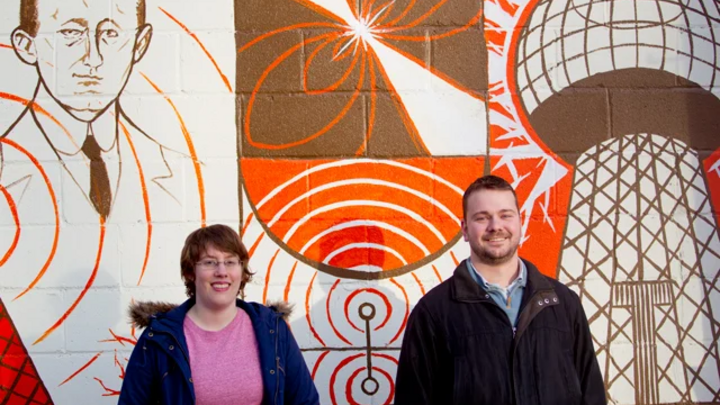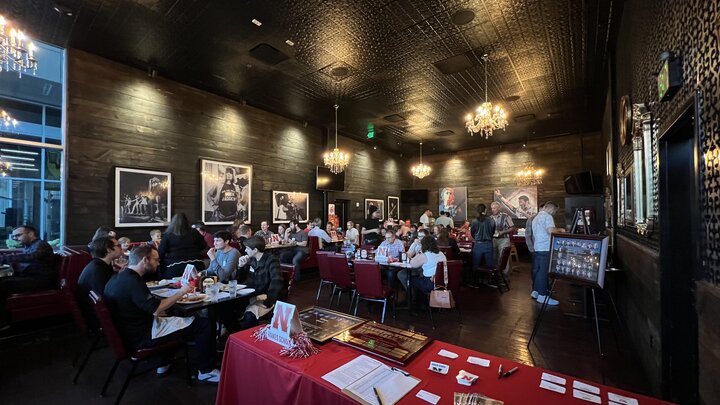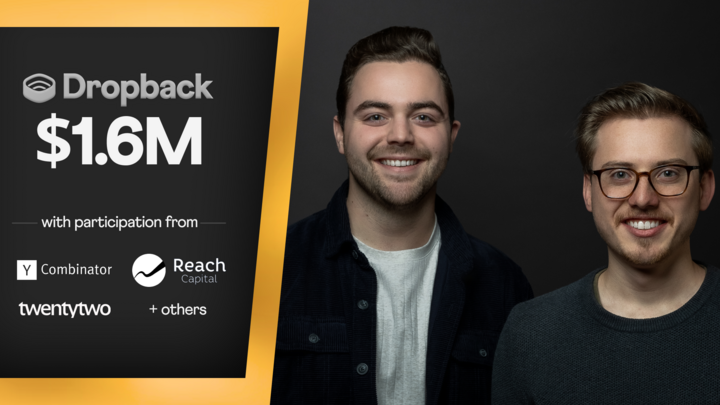Reposted from The Daily Nebraskan.
Leo Glass should have known he would end up making video games one day, or so he says.
Growing up on a farm in Valley, Neb., the youngest of 10 half-brothers and sisters, his early life consisted of chores and video games. His mother bought him his first game, a Coleco “Donkey Kong” Mini-Arcade, at a yard sale. He played it so much the battery acid began leaking out of the case.
“From that point, as a kid, that was my life,” Glass said. “My introverted time was always spent with games. I consumed as much of that stuff as I could.”
His best friends growing up were the people with whom he could share his video-gaming experiences. It wasn’t just a way to occupy his time; a good game was an emotional experience, one that taught him something.
The closest thing to a life-changing experience Glass ever had with gaming was when he played “Deus Ex” as a sophomore in high school.
“Everything I thought about the way action games were supposed to work, everything I thought about the way choice was supposed to work, was on its head,” he said. “If I wanted to be a total villain and do horrible things to people, the game allowed it. You might step on a rat, and you feel kinda bad because you hear that sickening crack. ‘Deus Ex’ was the first time that I thought, ‘I can impact the game world in an interesting way.’”
Megan Vokal didn’t play lots of video games as a kid. The games she did play, she played all the time. Her favorites were simulators – more specifically, pet simulators. It wasn’t until she was a freshman in high school that gaming grew into an obsession, with the help of Nintendo consoles like the GameCube and Wii.
By that point, Vokal knew she wanted to design games for a living. But being a “naive little brat,” she had little idea of the work necessary to accomplish such a goal. The first step was to learn how to code, so she enrolled in a programming class and began learning Java.
“In the class description it said, ‘at the end of the year, you will make a game,’ which was ‘Pong,’” she said. “It was a super basic project but still a lot of fun.”
She took two more years of Java classes and went on to enroll in the University of Nebraska-Lincoln Jeffery S. Raikes School of Computer Science and Management as a computer science major. She eventually found that her other interest, creative writing, was missing from her life. She wanted to find a career that would satisfy her interest in writing and programming.
She realized that her high school pipe dream, video games, was the combination of storytelling and computer programming she had been looking for. But it would take playing a game she had missed out on as a child before she truly realized making games was the career for her.
“I didn’t have a PS2 growing up, so I missed out on a lot of really great older games,” she said. “But a friend introduced me to ‘Shadow of the Colossus’ and it was the first time that I really saw games as what I consider to be art. That’s how someone can make a game and make it be a meaningful experience.”
Caleb Moore was also a “Nintendo kid.” Like many, he was drawn to the unique art style and individuality of Nintendo games.
And like many teens, video games were a social experience for Moore, as he began playing “Halo,” or trading Pokemon, with his friends.
He eventually realized that his true passion wasn’t gaming, but music.
“I still played games but I really loved the creative outlet music allowed me,” he said. “Music has a way of connecting and moving people without words and in deeper ways than words are often able to. I began to notice how connected music was with every quality entertainment experience I had.”
Although he had gone “head over heels” into music, starting his own band, he chose to pursue an electrical engineering degree at Southeast Community College in Lincoln. He took a side job working in graphic design and decided to drop out of school and pursue design full time.
After three years, Moore decided he wanted to do something more meaningful.
At the same time Glass, who had received an English degree from the University of Nebraska-Lincoln but had been designing training experiences for fraternity organizations for several years, quit his job in Colorado and returned to Nebraska with the goal of starting his own business and making video games.
He chose to become a part of Turbine Flats, an “ideas community” of tech startups in Lincoln. It’s because of Turbine Flats that he met Vokal and Moore.
Vokal had worked several software jobs, most recently with a Lincoln company called Semcat, which happens to be headquartered at Turbine Flats. She did this all while thinking that she would have to do her time at an AAA game developer before she would have the resources to focus on passion projects.
And along comes Glass, with similarly unique ideas about what video games can be. It didn’t take long for them to realize they had a golden opportunity on their hands and Clockwork Demon was born.
“At the same time, I’m talking about the types of sounds I want and evoking feelings,” Glass said. “And the office manager of ISoft (another Turbine Flats company) says, ‘My husband does that,’ and I was kind of blown away and that’s how we found Caleb.”
As the trio struggled to get Clockwork Demon off the ground, they set their sights on a project that they eventually chose to shelf. It took tragedy striking for them to find the project that would serve to introduce them to gamers.
“In October, I got married,” said Moore. “We went on our honeymoon and had a great time. When we got back my wife and I found out that our dog of five years had passed on in his sleep while we were gone. Obviously not a fun way to start off a marriage.”
Reeling from the death of his Boston Terrier, Jackson, Moore created a short animation and showed it to his coworkers. Glass immediately began to wonder if it could become a game, the exact kind of game that could define Clockwork Demon’s identity from the get-go.
“Our current project is exploring the gravity of human relationships through the lens of a dog,” Glass said. “And we’re excited because there’s a secret power that pets have in your life that doesn’t get explored much.”
Glass has been consulting a dog behaviorist to ensure that their game’s playable character is as realistic as possible. After all, the whole point is to make people think about the way they interact with pets, and people, in their own lives. That concept applies to everything Clockwork Demon does and plans to do.
“A phrase that Leo uses a lot, to the point that it sounds kind of buzzword-y, is ‘emotionally resonant games,’” Vokal said. “We want the games we make to explore parts of our human nature that a lot of games don’t explore. We wanna do that in a way that takes full advantage of the interactivity of the video game medium. There are some games that have a very linear story line that don’t explore choice or consequence. And we love those games, too. But we wanna make sure in our games that the player always feels like they have agency or a sense of control.”
But ambitions require resources, the kinds of resources that an independent startup may find hard to come by. Clockwork Demon’s greatest challenges are not creative ones; as Glass said, they have no shortage of good ideas.
Their challenges are the limitations of a three-man team, none of whom have worked in game development before. And if they want their game to sell well enough to warrant future games, they have to make themselves known.
“For most indie games, it feels like marketing and PR is something that happens throughout the game, its lifetime,” Vokal said. “Because if no one knows who you are you can’t just say, ‘here’s our teaser trailer, here’s our release date, look for us in the next six months.’ You have to have a constant dialogue so that people will actually know that you exist and will actually wanna buy your game when it comes out.”
Glass is confident that their projects will resonate with gamers.
“I really believe when people are entertained with the right things it does make the world better,” he said. “It causes people to be introspective and to learn something about their lives.”




